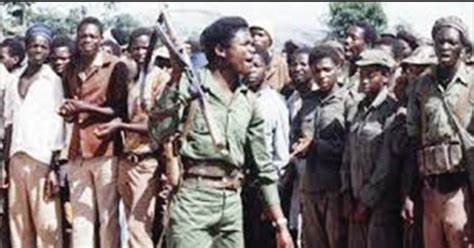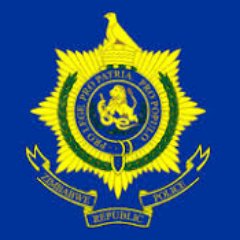War veterans compare life in the battle field to Christians’ biblical hell
Share

By Marsha Sengwe
Before the birth of Zimbabwe, what our mothers and fathers experienced was inhuman. They were ill-treated by the white regime,
Girls and mothers were raped daylight while our fathers’ wealth, cattle, goats were raided and looted, in their eyes. They were forced to provide free or cheap but hard labour in the fields of the whites, on empty stomachs and being subjected to all sorts of harassment. At the end of the day, what they were earning was nothing.
They were limited in enrolling in formal schools and with many people left illiterate so that they would be easy to manipulate. Because of this, many thought of igniting the Second Chimurenga and got into the battlefield leading to Independence in 1980.
They had to fight for the human rights we enjoy and demand for today, including access to education and health services that were limited. Many blacks were shuttled from their original homes which were fertile to what was called Tribal Trust Lands (TTL) whose soils were poor and receiving little rain while the whites took all the productive wet and fertile land.
The freedom and independence did not come on a silver platter as many lives were lost. Those who participated in the war of liberation say the battle field was “hell on earth”. Cde Sam Parirenyatwa, one of the surviving war heroes from Mashonaland Central once told Nehanda Guardian: “the battle field was not for the faint hearted, we exposed ourselves to a lot, and that’s when we realised that our own urine was healthy and a possible source of ‘drinking water’ in case we were where we could not get water.
He said it was one place (the battlefield) where one would never want to return. The battlefield, he said, was one place where one could not plan for tomorrow, but lived for the moment only. “It was a place where there was no mother or father, uncle or grandfather; we were all brothers and sisters determined to bring freedom to Zimbabwe,” he said.
According to Cde John Murawa. “It was a place and time where and when you could not have a granary for food storage, because you were never at one place and did not know what was coming. “We spent a number of days hungry though at times we would get food from villagers. Our lives were always in danger, from the enemy, from wild animals as well as from hunger.
He adds: “What was always near us was death but the gun would give us solace against the enemy as well as wild animals while villagers would feed us whenever they could.”
He added that since death was everywhere and everyone’s predicament losing other comrades became common to them and they learnt to live with it. Because of this experience they went through when they were young, some of the comrades were facing mental challenges due to the trauma they went through.
Female ex combatants who spoke to New Ziana said since they had nowhere to call home in the battle field, rains would drench them at will and when the sun rose, it was the same as they had nowhere to hide neither did they had time to hide.
“I will tell you that towards ceasefire, it was even worse, Rhodesia, then experienced heavy rains that also became an obstacle in our fight. We did not have much machinery as compared to the enemy. It means we had to walk in the rains and some of our comrades were swept away as we crossed rivers. We thank our ancestors and spirits for taking us this far.
“I am however saddened by youths of today who always mock war veterans by saying idzoserai payanga yakasungurirwa tinoisunungura. What they do not know is that it was not easy being in the battlefield.
“A lot happened, many were killed, some placed in drums of acid and yet these youths have the temerity to utter such words,” lamented Cde Maidei Chitanga of Mt Darwin.
She commended the Ministry of Primary and Secondary Education for making History a compulsory subject at Ordinary Level.
“Hopefully that will help them mind their speeches and if possible government should also make National Youth Service training compulsory for those intending to pursue university in Zimbabwe,” she added.
Zimbabweans will commemorate 44 years of Independence on Wednesday April 18.
In Mashonaland Central, provincial celebrations will be at Bare Secondary School in Chiweshe.







